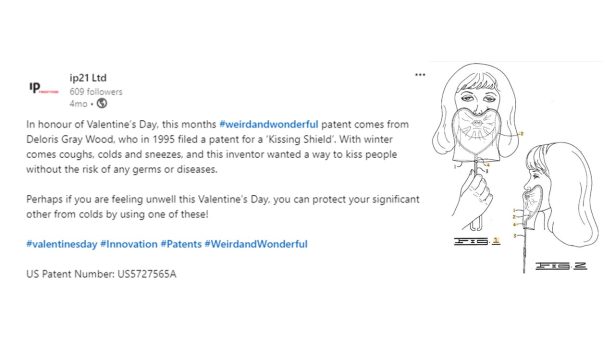Intellectual property within science

Katherine Hampton, a UEA PhD student, wanted to learn about intellectual property (IP) within science and so set up her placement with ip21 who she had met at NRPDTP’s annual Host Forum. ip21 offer a full range of intellectual property services including patents, trademarks, design rights, copyright, licensing, litigation and valuation.
Katherine completed her placement during the third year of her PhD, just after the winter break when she had to wrap up her PhD project as her lab closed, so it was a ‘good time to step back’ in Katherine’s opinion.
During her first week, Katherine met all the patent attorneys to understand their specialities and the projects on which they were working. She then followed new cases across different fields of science: drafting patents; writing claims; reading and replying to the Patent Office examiners queries; through to patent grant. She did data entry on Equinox, a specialist CRM intellectual property software plus learnt about the trademark process. She also worked on renewals for both patents and trademarks.
In addition, she wrote IP related articles for ip21’s website, designed new leaflets and information sheets plus found and wrote about unique historical patents for ip21’s LinkedIn #weirdandwonderful patent posts, e.g. the kissing shield and the first motion picture projector.
The placement gave Katherine the opportunity to understand the entire process: from applications through to grant for both patents and trademarks. By detailed client information gathering, she was able to describe unique complex scientific inventions in clear and concise explanations for examiner review, Katherine commented on how her written communication and critical evaluation skills improved through the placement which she hopes will help her with future dissemination of her PhD research.
Katherine commented on how learning to be realistic about the amount of time certain tasks would take and blocking out her calendar, her time-management skills improved. She would forward plan her time and prioritise stricter deadline which will support her PhD planning.
The positive culture at ip21 was appreciated by Katherine who noted a good work-life balance and support for trainees undertaking patent exams including extensive study leave prior to the exam. She liked the positive collaboration and learning between patent attorneys with different areas of expertise.
Katherine is grateful for all the guidance received from the ip21 team and was pleased to be able to give back to them by running some Excel training sessions on creating short-cuts to enable quicker searching of IP related data.
Richard Jones, managing director at ip21 said, Katherine developed her legal and research/analysis skills assisting with legal projects and cases whilst with them.
Katherine’s advice for other PhD students is to consider doing something you have never had the opportunity to do before. It is one of the last opportunities to try something totally different. She was surprised at how much she enjoyed her time at ip21 and would seriously consider working in intellectual property in the future.
